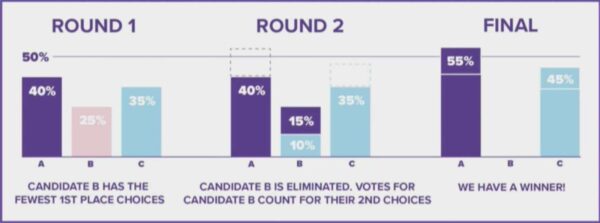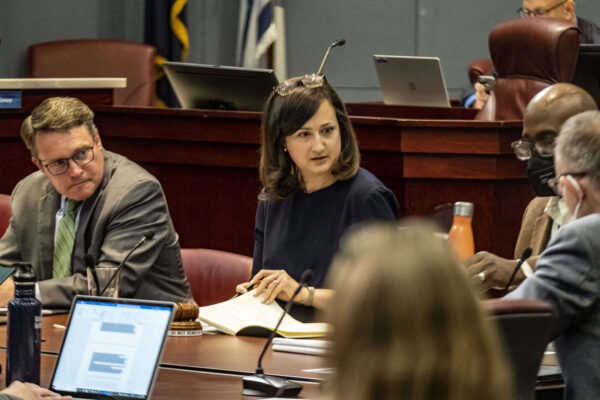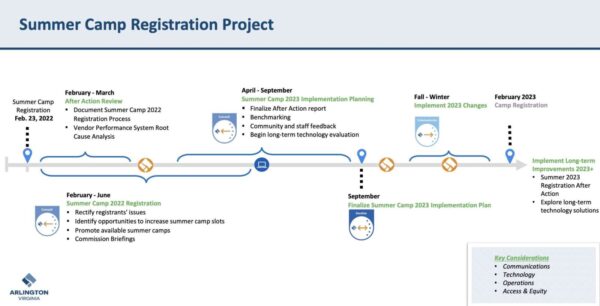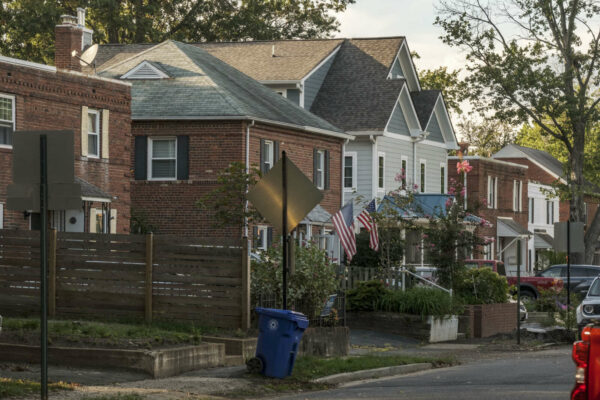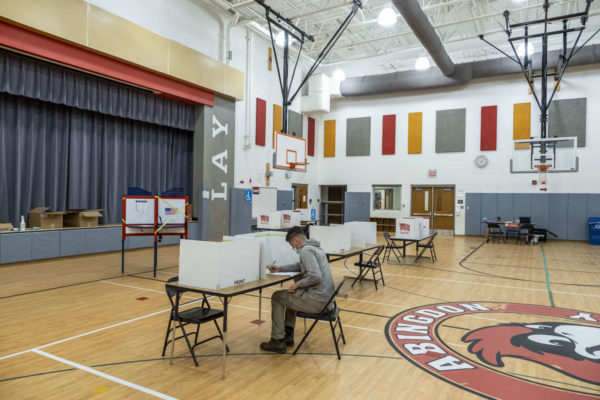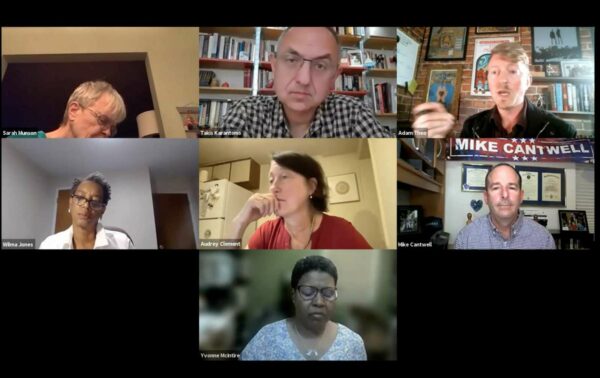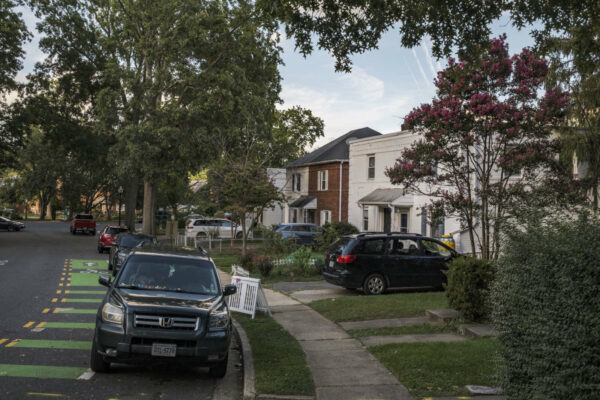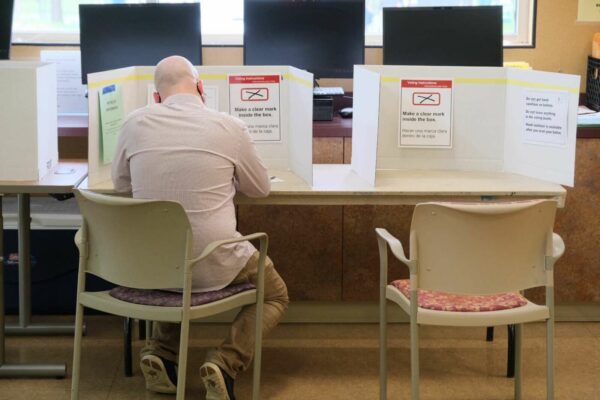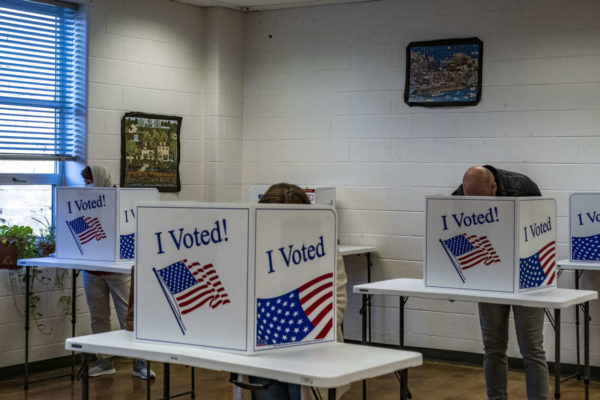
In the primary election next June, registered voters will be able to rank their preferred candidates for a seat on the Arlington County Board.
The change comes after the Arlington County Board unanimously endorsed testing out ranked-choice voting for County Board elections on Saturday.
“This reform alone will not be sufficient to overcome… the forces trying to undermine our democratic traditions,” Board Chair Katie Cristol said. “Nevertheless, I think this is worth trying. I hope that we can not only excite Arlington voters about the potential, give them an opportunity to express the full range of their preferences, but also provide a model to other communities.”
The Board’s decision makes Arlington the first locality in Virginia to move forward on adopting ranked-choice voting.
UpVote Virginia, a newly formed nonpartisan organization that supports changes like ranked-choice voting, celebrated the move.
“It’s not everyday in Virginia you can say you were the first to do something, but this resolution truly does signify a historic opportunity,” UpVote Virginia Executive Director Liz White said. “Looking forward, we hope your example today will set the stage for other localities across the Commonwealth.”
The change, which would only apply to primaries run by the county’s Office of Elections, comes months ahead of the primary. Legally, the Board has until March 22, 2023 to enact RCV for the June 20 primary.
Local political parties will declare whether they will pick their nominee via a primary run by Arlington’s election office or a party-run convention.
According to White, the method has bipartisan support.
“Even longtime political rivals have found common ground in support of ranked-choice voting,” she told the Board on Saturday. “At UpVote Virginia’s launch event in August, we heard remarks in favor of RCV from your very own Democratic Congressman Don Beyer and former Gov. George Allen, a Republican. It’s not often you get those two speaking at the same event, but that really encapsulates how broad RCV’s appeal can be.”
And in Arlington, a recently closed survey that netted 786 responses found that the majority of respondents support the change.
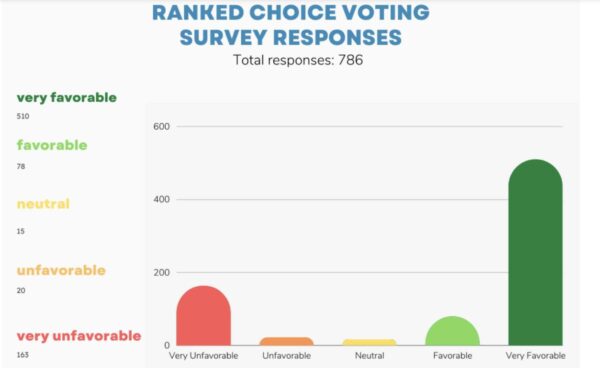
Per the survey, support fluctuated some based on zip code. Support was weakest in the 22207 zip code — residential northern Arlington, which trends a bit more conservative than the rest of deep blue Arlington — where 63% of 152 residents support it. That compared with 75% of 177 residents in the 22201 zip code, which includes part of the Rosslyn-Ballston Metro corridor.
Other zip codes with smaller response rates had higher favorability rates.
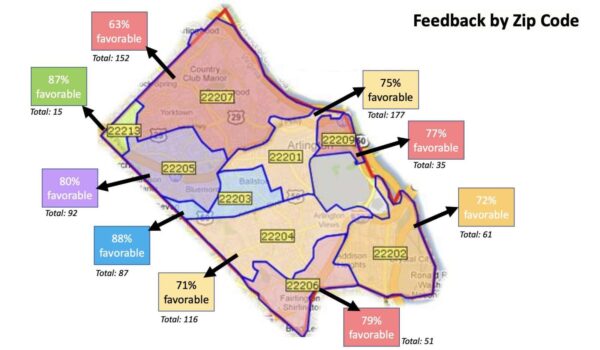
The potential change comes on the heels of other voting reforms enacted by the state, including expanded access to absentee ballots, new automatic and same-day voter registration and new legislative maps.



